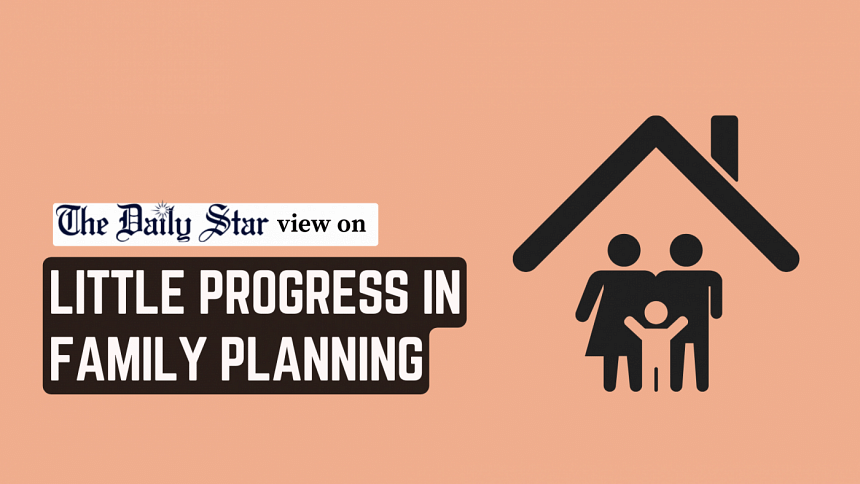Why has family planning stagnated in Bangladesh?

It is quite concerning that a country as densely populated as Bangladesh has not updated its family planning structures for almost two decades. The significant gap in the need for and availability of family planning services, particularly in rural areas, raises serious questions about the health authorities' commitment to public health and women's empowerment. According to a recent report by Prothom Alo, there are 11,145 vacant positions at different levels of the Directorate General of Family Planning—almost 23 percent of all its jobs—among which over 9,000 are field-level jobs. Meanwhile, the government's stock of various reproductive health products is dwindling, and some districts are completely out of contraceptive and/or menstrual hygiene products. This acute shortage of reproductive health supplies and absence of field officers—who provide door-to-door services—are not just logistical issues; they reflect a deeper neglect of reproductive health priorities of the government.
Per a report published in this daily, contraceptive use has seen only a six percent increase over 19 years, from 48 percent to 54 percent. This slow growth, coupled with the consistent 12 percent unmet need for contraception, underscores the failure of responsible authorities to adapt to the evolving needs of the population. In rural areas, the challenges intensify due to poor transportation, widespread illiteracy, and social stigma against family planning. The situation in Moulvibazar is illustrative, where a 2019 study by the Society for Environment and Human Development, the Centre for Injury Prevention and Research Bangladesh (CIPRB), and the United Nations Population Fund found high rates of early marriage and low contraceptive use.
We cannot help but ask: how can such an essential component of the healthcare system be overlooked? And what does this imply about the priority given to women's health and rights in Bangladesh?
To effectively address these issues, a multifaceted approach is required. The government must launch a comprehensive campaign to promote shared contraceptive responsibility and address social stigmas and gender biases in family planning. Educating about male contraceptive methods and raising awareness about the adverse side effects women face due to contraception are essential. Additionally, the government must prioritise filling the vacant positions and ensuring adequate contraceptive supplies. These actions are not just measures to improve family planning services but are pivotal for ensuring public health, gender equality, and the overall well-being of the population.
Follow The Daily Star Opinion on Facebook for the latest opinions, commentaries and analyses by experts and professionals. To contribute your article or letter to The Daily Star Opinion, see our guidelines for submission.

 For all latest news, follow The Daily Star's Google News channel.
For all latest news, follow The Daily Star's Google News channel. 







Comments